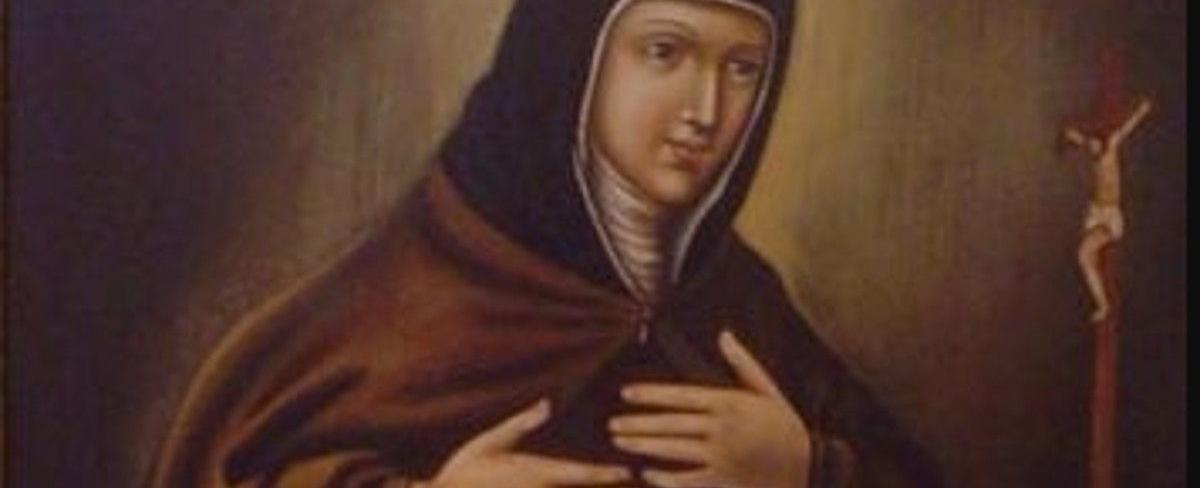Saint Camilla Battista da Varano: Poor Clare Humanist and Spiritual Writer

On May 30 the Franciscan family celebrates the memory of St. Camilla Battista da Varano (1458–1524), a noted Poor Clare humanist and spiritual writer.
Interior struggle marks religious vocation
Camilla was born out of wedlock to Cesare da Varano, the Duke of Camerino in the Marches of Italy. Cesare was very fond of Camilla and raised her at court, where she received an excellent education. He hoped that Camilla would contract an advantageous political marriage, but after a profound interior struggle, she decided in 1481 to enter the Poor Clares at Urbino. Her father eventually became reconciled to her vocation and, at the urging of the friars of the Observant Reform, brought her back to Camerino in 1484 to help found a new Poor Clare monastery there.

In 1491 Camilla wrote a fascinating account of her interior journey up to that point, “The Spiritual Life,” in which she details how she was gradually led to redirect her life, and once in the monastery, her increasing desire “to enter the inner places of the desert, that is, the most secret sufferings of the heart of Jesus.”
Her most popular work, “The Mental Sufferings of Jesus,” develops this theme. The treatise takes the form of a conversation between the crucified Jesus, other participants in the drama of the crucifixion, and herself, detailing the interior suffering Jesus underwent during the three hours he hung on the cross, including his grief at the ingratitude of Judas. This work quickly became very popular and was reprinted numerous times. Camilla’s writings are a high point of the Poor Clare tradition of following the “poor, crucified Christ,” and mark an important stage in the growth of devotion to the Sacred Heart of Jesus.
Exterior suffering leads to exile, founding of monasteries
Camilla’s later life was filled with exterior suffering as well. The forces of Pope Alexander VI captured Camerino in 1502 and executed her father and brothers. She herself fled to a monastery in another region until she felt it safe to return to Camerino.
In her later years she was asked to help found several other monasteries of Poor Clares. She died during a plague in Camerino in 1524, was beatified in 1837, and canonized by Pope Benedict XVI in 2010.

In 2016 the town of Camerino was hit by a devastating earthquake, but the small community of Poor Clares there has managed to rebuild and has maintained its presence to the people of the area.
In 2021 Bret Thoman, OFS, published an English translation of her main writings, with an introduction to her life.
-----
Main image: An older image of Camilla (Anonymous. public domain)
Dominic Monti, OFM
Professor of Franciscan Research in the Franciscan Institute of St. Bonaventure University
Dominic V. Monti, OFM, is a Franciscan Friar of Holy Name Province (USA) and currently professor of Franciscan Research in the Franciscan Institute of St. Bonaventure University. He devoted the greater part of his ministry to teaching the History of Christianity, in particular the history of the Franciscan movement. He has contributed two volumes to the Works of St. Bonaventure series and is author of Francis & His Brothers, a popular history of the Friars Minor.

